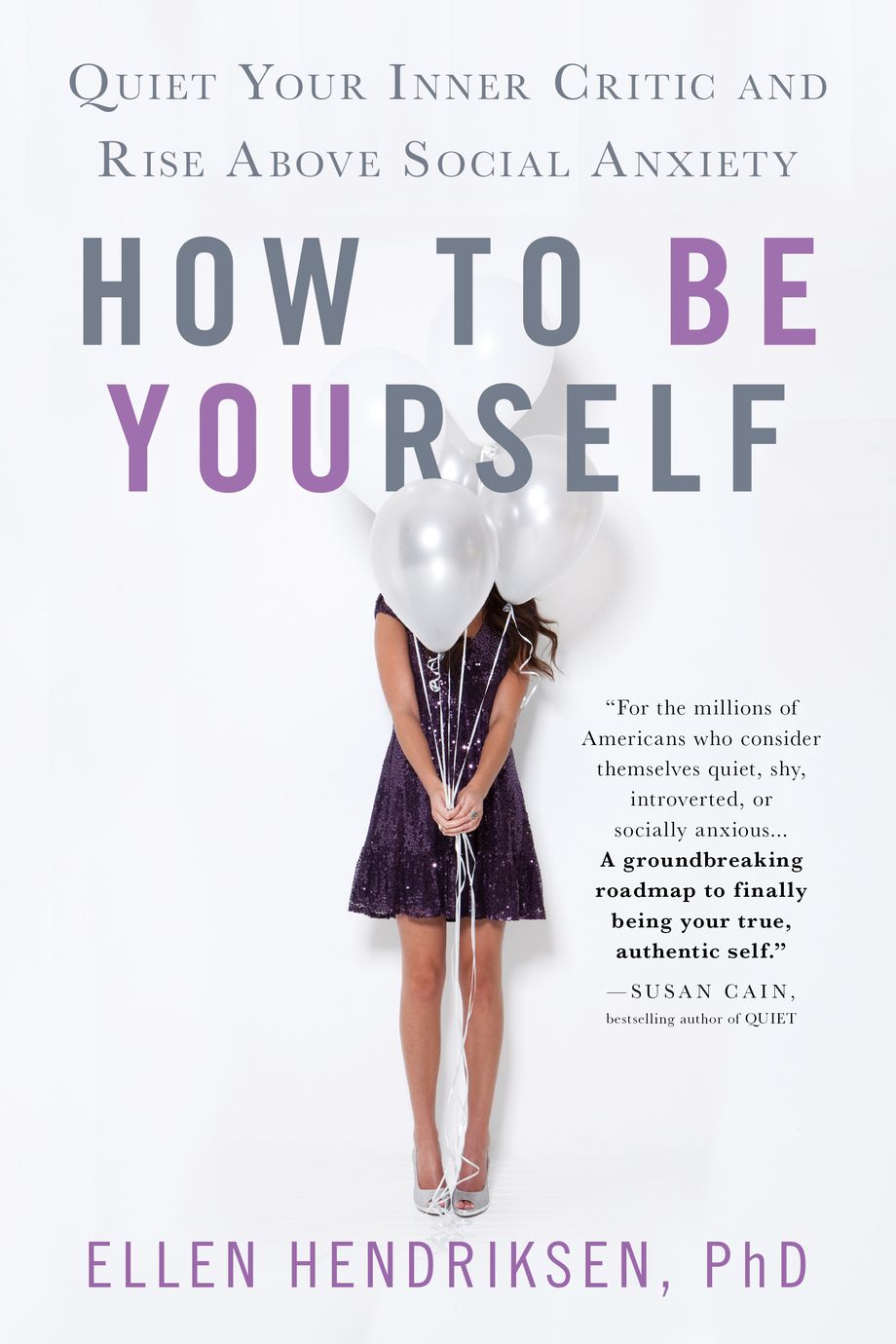 Fifteen million Americans suffer from a diagnosable form of social anxiety, and millions more suffer from less severe but related phobias. Anxiety can be debilitating for people when it starts to undermine their daily lives.
Fifteen million Americans suffer from a diagnosable form of social anxiety, and millions more suffer from less severe but related phobias. Anxiety can be debilitating for people when it starts to undermine their daily lives.
Ellen Hendriksen is a clinical psychologist, a researcher at Boston University’s Center for Anxiety and Related Disorders, and she’s also the author of How to be Yourself, a new book about the rise of social anxiety in America. As someone who has struggled with social anxiety herself, Hendriksen’s message is simple and powerful: The way past social anxiety is directly through it. Leaning into uncomfortable situations by focusing on anything except yourself, she argues, is the best way to get over the discomfort.
The following are selected excerpts from an interview Sean Illing, a writer for Vox, conducted with Dr. Hendriksen about overcoming social anxiety.
Illing: What, exactly, is social anxiety?
Hendriksen: Social anxiety is a perception that there is something wrong or deficient about us, and unless we work hard to hide that perceived deficiency, we’ll be revealed or judged or rejected. These perceived deficiencies tend to fall into four categories. The first is physical appearance. So we might be worried that people will notice that we’re having a bad hair day, that we’re fat, that our skin is blemished, something like that. And that we’ll be rejected if it becomes obvious.
The second category is the signs of anxiety itself. We’re worried that it’ll become obvious to everyone that we’re blushing or our hands are trembling or that our voice is shaking or that we’re sweating through our shirt. And again, the big fear is that we’re being judged or mocked.
The third and fourth categories are probably the most common. We worry about our social skills, that people will realize that we’re boring or unfunny or not as smart as they thought. This is when people tend to ramble from topic to topic in a nervous or rambling way. And maybe the most significant form of social anxiety is when we fear that our entire personality or character is somehow deficient and that no one really wants us around.
Illing: When does social anxiety really become a problem in someone’s life?
Hendriksen: When we start to avoid our own lives as a result of it. Avoidance can happen overtly — we don’t show up, we call in sick, we text the host of a party we thought about attending and say that we mysteriously don’t feel well. Or we might avoid covertly, in which case we show up to the meeting at the moment it starts so we don’t have to do small talk before, or we show up to the party and scroll on our phone the whole time or only talk to the one or two people we know. This is when social anxiety begins to undermine our day-to-day lives.
Illing: How common is social anxiety?
Hendriksen: If we’re talking about the percent of the population that suffers from clinical social anxiety — the type of anxiety that causes them to forgo a promotion at work or forgo 20 percent of their class participation grade because they’re too terrified to raise their hand — that’s something like 13 percent of the US population. But 40 percent of the population suffers from lower levels of social anxiety, the sort that makes them uncomfortable but doesn’t ruin their lives.
Illing: I’ve had periods of my life where social anxiety wasn’t debilitating but was bad enough to undermine my day-to-day experiences. But the more I tried to overcome it, the more self-conscious I became. How can people avoid this self-fulfilling cycle?
Hendriksen: I’ve been there. When we’re in a socially anxious moment, our attention naturally turns inward because we want to monitor how things are going. We want to do impression management and present ourselves in a certain way. The problem with this is that it takes up all our bandwidth, and we’re unable to listen or pay attention to what’s in front of us. And the more we turn inward, the more our anxiety tells us that everything is going horribly.
You get out of this by deliberately turning your attention inside out. You focus on the person you’re talking to, or the group that’s in the room, and you listen closely. The trick is to focus on anything except yourself, and that magically frees up a lot of bandwidth. When we’re able to do this, we come across as much more authentic and open and the anxiety disappears.
Excerpted from “A psychologist explains how to overcome social anxiety” in Vox online. Read the full article to learn more.
Source: Vox | A psychologist explains how to overcome social anxiety, https://www.vox.com/science-and-health/2018/6/26/17467744/social-anxiety-psychology-mental-health | © 2019 Vox Media, Inc.
A screening can help you determine if you or someone you care about should contact a mental health professional. Care Coordinators can arrange a free 30 minute Care Consultation so you can explore options with an expert. Call or email our Care Coordinators at 650.688.3625 or careteam@stage.chconline.org to set up an initial Consultation appointment.





